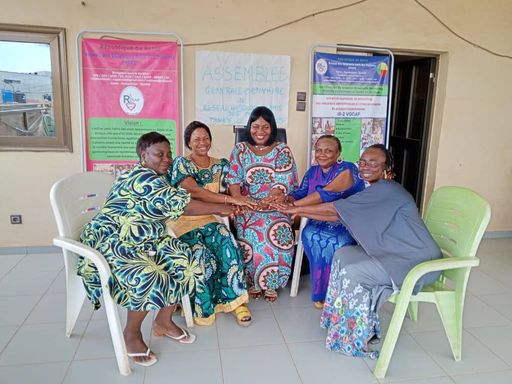Labour pangs coursed through Grace Mwale's body as she clutched her swollen belly, each contraction stronger than the last.
The 24-year-old Malawian mother-to-be feared for herself and her unborn baby as the seconds ticked by with no sign of maternity assistance.
The nearest hospital was hours away, ambulance-on-call was unheard of, and nobody had a clue whether Grace was on course for a normal delivery.
The situation may not be uncommon in villages like theirs, but nothing quite prepares a family for medical uncertainty.
Enter Esther Banda, a local midwife with decades of experience and steady hands.
Esther would guide Grace through labour over the next few hours, offering soothing words, massaging her back, and ensuring she stayed hydrated. When the baby's head finally crowned, her skilled hands safely delivered a healthy boy.
Grace, exhausted but overjoyed, whispered her gratitude.
"Without Esther, I don't know what would have happened," she tells TRT Afrika, cradling her newborn.
This scene plays out every day across Africa, where midwives like Esther form the backbone of maternal healthcare, working in challenging conditions to ensure safe deliveries.
Now, the World Health Organisation (WHO) is calling for a global expansion of midwifery models of care, which experts see as a move that could save millions of lives.

Tradition of trust
A skilled midwife builds trust, offers emotional support and empowers women through one of life's most vulnerable experiences.
Studies show that women cared for by midwives are more likely to have healthy vaginal births and report higher satisfaction with their care.
"Midwives don't just catch babies – we listen, we educate, and we advocate for women," says Fatoumata Diallo, a midwife in Senegal. "In many villages, we are the only healthcare providers mothers can rely on."
Kenyan midwife Jane Wambui knows what it takes to be a reassuring presence around a pregnant woman.
"When a woman sees the same midwife throughout her pregnancy, she feels safe. She knows someone understands her fears and her body. That connection saves lives," Jane tells TRT Afrika.
Numbers tell a story
Maternal and newborn deaths remain alarmingly high, particularly in low-income countries. The WHO estimates that universal access to skilled midwives could prevent over 60% of these deaths, saving 4.3 million lives annually by 2035.
"Expanding midwifery models of care is one of the most effective strategies to improve maternal and newborn health globally," says Dr Anshu Banerjee, director for maternal, newborn, child and adolescent health at WHO. "These approaches improve outcomes, maximise resources, and can be adapted to all countries."
Midwifery also counters the growing over-medicalisation of childbirth. While interventions like C-sections reduce mortality in some conditions, they also carry risks. Some countries have C-section rates in excess of 50%, far above the WHO's recommended 10-15% for medical necessity.
"Skilled midwives help women trust in their bodies and their abilities; they ensure that women have access to vital emotional support," says Ulrika Rehnström Loi, a WHO midwifery expert.

Building better systems
Midwives often work in challenging conditions that are exacerbated by underfunding, a lack of equipment, and administrative failures in integrating them into health systems.
Many work alone, without backup from doctors when complications arise.
The new WHO guidance offers practical tools to strengthen midwifery care through three key approaches. The first of these is continuity of care, which ensures that the same midwife or a small team of midwives assist a pregnant woman throughout pregnancy, birth, and recovery.
Another key model is the creation of midwife-led childbirth centres to facilitate safe, minimal-intervention deliveries for women at low risk of complications.
A community-based approach also brings maternity care directly to villages through mobile units or local health centres, reaching even the remotest of areas.
"Midwifery models aren't just smart; they are a necessity," states Anna Ugglas, CEO of the International Confederation of Midwives. "They restore dignity to childbirth and ensure safety for mothers and babies everywhere."
As global healthcare leaders push for expanded midwifery care, the underlying message is that supporting midwives translates into saving lives.
Back in her Malawian village, Esther perseveres with the quiet determination of a grassroots healthcare warrior who knows she is making a difference.
"Every mother deserves a safe birth," she tells TRT Afrika. "And every midwife deserves the tools to make that happen."



















